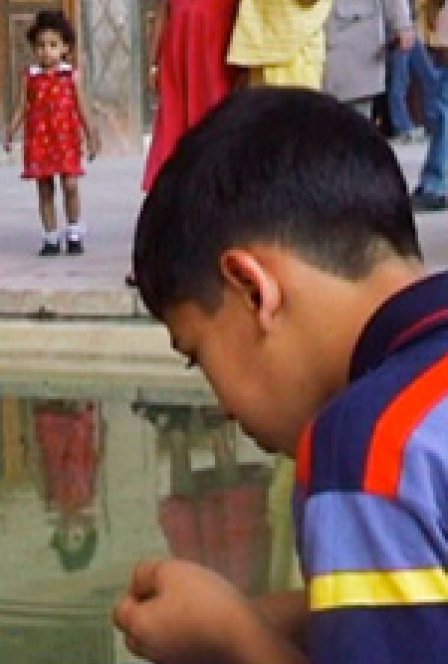The opening shot of Michael Almereyda’s Paradise — an ethereal, coldly perfect trip down a moving walkway bathed in blue light — transports the viewer to the realm of pure cinema, the kind that this idiosyncratically beautiful work explores throughout its entirety. You’ll know whether or not this is your thing the second Almereyda cuts from this scene to a shot of a young girl watching television, without any regard for traditional narrative definitions of time and space. For those willing to give themselves over to the singular, often hypnotic rhythm this opening establishes, the film yields considerable rewards.
Paradise features dozens of moments shot, it seems, spontaneously by Almereyda (best known for his Hamlet, starring Ethan Hawke) over the course of several years. They're linked not by any narrative structure, but by theme (and rather loosely, on top of that). Ostensibly, each theme represents a definition of “paradise.” So the film plays as a series of briefly glimpsed snapshots, moments in time that register, alternately, as quietly moving, blissfully tranquil, gently humorous, ineffably mysterious, downright transcendent, or simply joyous.
Although Almereyda captures intensely intimate moments without providing context, the film’s recurring motifs — of children and childhood innocence, the beauty and vastness of nature and the sky, music and music-making — are gratifying. These visions of paradise range from a boozy, late-night philosophy lecture, to a touching childhood bedtime ritual, to the flight of a bird narrated by a child from inside a car, to the act of filmmaking itself, and even a funeral service.
If I could ask one thing of this already exemplary film, it would be to see these unfussy moments of genuine humanity arranged to add up to something larger, edited in a way that allowed them to enter into a sort of dialogue with one another. Each is lovely in its own way, but I’m not sure that the film as a whole reaches the same heights as its best moments. But maybe that's not the point. Maybe an overarching theme isn't present because Almereyda’s own worldview remains obscure. Still, if not quite heavenly, the simple pleasures contained in Paradise are a feast of earthly delights.

